What is the definition of intellectual property? A complete Guide to IP.
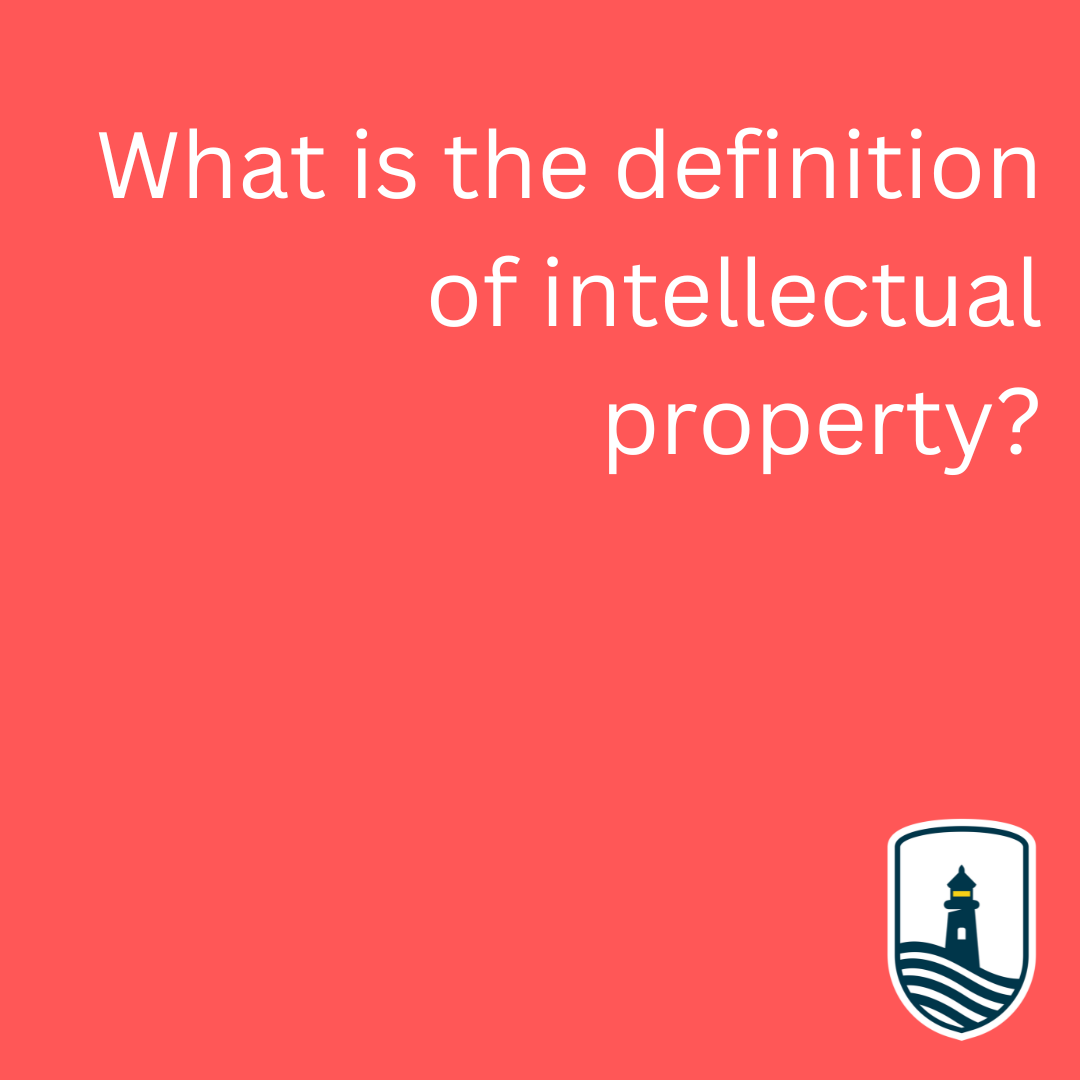
Content:
- Definition of intellectual property
- What is intellectual or intangible property
- Types of Intellectual Property
- How to protect intellectual property and how long does it last
- What is the most valuable type of intellectual property?
- What is the most important type of intellectual property?
- How losing intellectual property can damage your business.
- What it means to own intellectual property
- Is IP good or bad?
Definition of intellectual property
Intellectual Property or IP is (obviously) property and not just any type of property. That's an intangible piece of property created by the power of the human mind. That's the very core of what made humans, well, humans, and the foundation of civilization.
Wow! It was so pretentious, don't you think? Nonetheless, the first creation happens within one's mind. Before someone invented the wheel, they thought about it and imagined it, and only after this, it became a thing.
But we are getting too general here. In the modern world, the definition of intellectual property might be slightly different from what I wrote before. Except for being (a) intangible and (b) created by human intellect, it also must be (c) registrable and protectable.
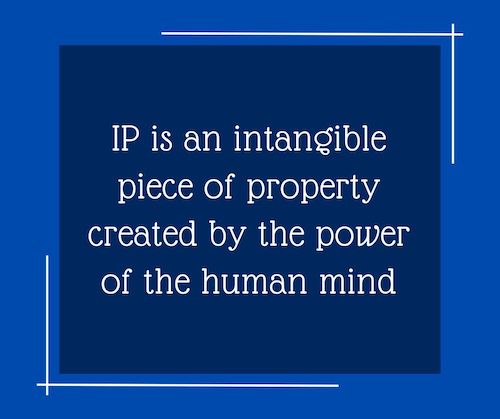
What is intellectual or intangible property
Being protectable might sound like not a huge deal. Yet it is essential. In my second definition, the property must be protectable, and who is to decide what is and is not? That's right, the government.
Now I know there is a lot of controversy about intellectual property and how it negatively affects the innovation it was meant to encourage. I will talk more about this in the chapter "Is IP good or bad."
Alright, so the intellectual property can be either protectable or not protectable. For example, an idea is not a protectable piece of intellectual property. You might have the best idea there is, a one-million-dollar idea. Still, unless you can adequately formalize it as either patent, copyright or a trade secret, it won't be (technically) intellectual property.
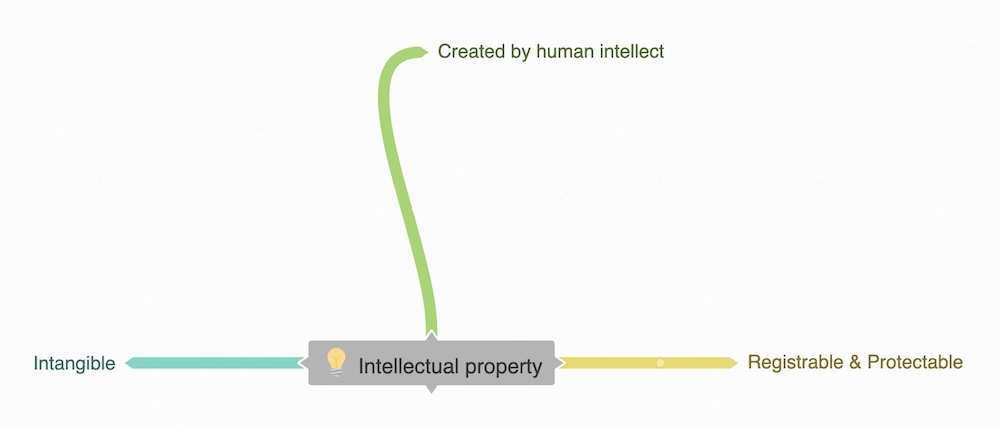
Is your idea "intellectual"? Could be. But is it a property? That's where the catch is. Ideas are too unstable and unspecific to be considered a piece of property.
Types of Intellectual Property
So ideas are not considered to be intellectual property. What are the types of intellectual property, then?
You will be surprised to learn that there is no 100% accurate list of types of intellectual property. Some countries will recognize some types; other countries will identify different types.
Generally speaking, these are the main types of intellectual property:
- Trademarks. Our bread and butter. Every day you interact with hundreds of trademarks. A trademark is anything that helps you to distinguish a product or a service from another similar product or service. Sounds complicated? No worries, it's straightforward. Trademarks are brand names, logos, sounds, colors, and even gestures.
- Patents. That's the most difficult to get and the most well-known type of intellectual property. When someone invents something, provided that it's useful, novel, nonobvious and possible to implement.
- Copyrights cover all literature, drawings, music, songs, computer code, etc. It's one of the most general types of intellectual property as it includes so many different objects (works). Also, you usually get this right immediately after creating a "work."
- Domains are yet another type of intellectual property. It is a more "young" type and is considered secondary compared to trademarks.
- Trade Secrets are cool. In this case, you don't tell anyone about your invention but decide to keep it secret. This secret gives you an economic advantage over competitors. Many companies use trade secrets; the most famous is the Coca-Cola formula. But the owners of trade secrets rely only on themselves in this; there is no formal protection.
- Industrial design or design patents. Unlike real patents, design patents protect a product's look and not how it works. That's the main difference. For instance, a design patent protects the look of a new iPhone.
- Plant patents or plant breeder's rights. They are recognized only in some countries. But if you breed a new type of plant or a type of a known plant with distinctive beneficial characteristics, you can register your rights and prevent others from growing these plants without your permission.

How to protect intellectual property and how long does it last
Intellectual property is protected by registration. The previous statement is true for all types of IP except trade secrets. In some countries, you don't have to register copyrights because you have the rights after creating your work. But this makes enforcing and selling your copyright a lot more complicated.
Patents, trademarks, domains, industrial designs, and plant patents must be registered in order to enjoy protection.
With patents, it works like this:
"Hello, government. I invented this amazing thing."
"Hmm, I will allow you to be the only one who could allow others to produce or sell it, but first, I must check that it's useful, novel, and not too easy to create. Fill out this easy 50-page document and pay me several thousand dollars so my employees can review it. Oh, also, you must pay me every year to keep the right. Additionally, after 20-25 years, your patent will expire anyway. Cheers!"
The processes are very different and sometimes counterintuitive. In the USA, when registering a trademark, you need to confirm that you actually sell the products you claim in your application to register a trademark. If you make a false statement, it can have dire consequences for your mark.

- Trademarks are registered for 10 years and can be renewed for periods of 10 years.
- Patents are protected for 20 years if you pay your annuities. After this a patent will become free to use by anyone.
- Copyright expires 50 to 100 years after the authors dies
- Domains must be renewed every year
What is the most valuable type of intellectual property?
Like everything with IP (intellectual property), it depends. A trademark with a reputation can cost hundreds of millions of dollars because of the power associated with the mark and the potential profits of selling products under this trademark.
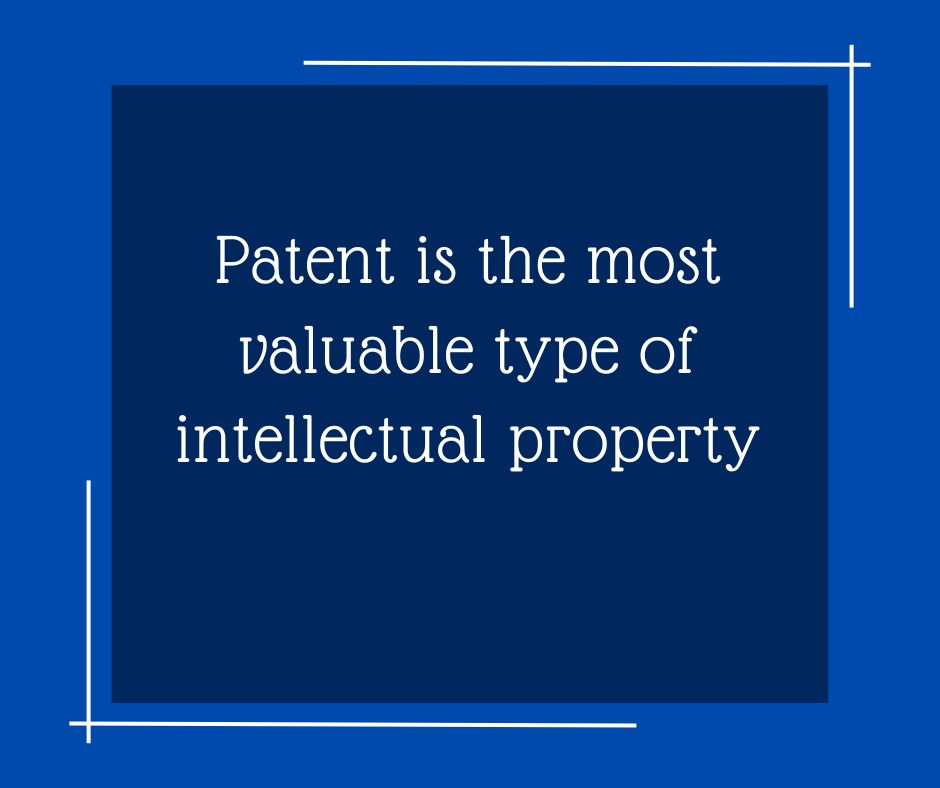
But usually, the standard response is that a patent is the most valuable type of intellectual property. Compare two situations. If you own a famous trademark, let's say Apple, you can prevent others from using the same or similar brand name. Yet they still can sell mobile phones. If you have a patent covering mobile phones, you will be the only one selling mobile phones. The second situation is far more lucrative for you as a business.
Patents are costly, challenging to get, and extremely expensive to maintain, yet they offer second-to-none value to your business. You have probably heard about those law battles when hundreds of millions are awarded to one side or the other, right? That's the power of patents.
Copyrights covering famous movie franchises, books, and music are also very valuable. Nonetheless, only a tiny percentage of copyrights have any value. All the photos you post on Instagram are covered by copyright protection, but let me guess, you rarely get calls from anyone willing to pay you for using a photo you posted.
What is the most important type of intellectual property?
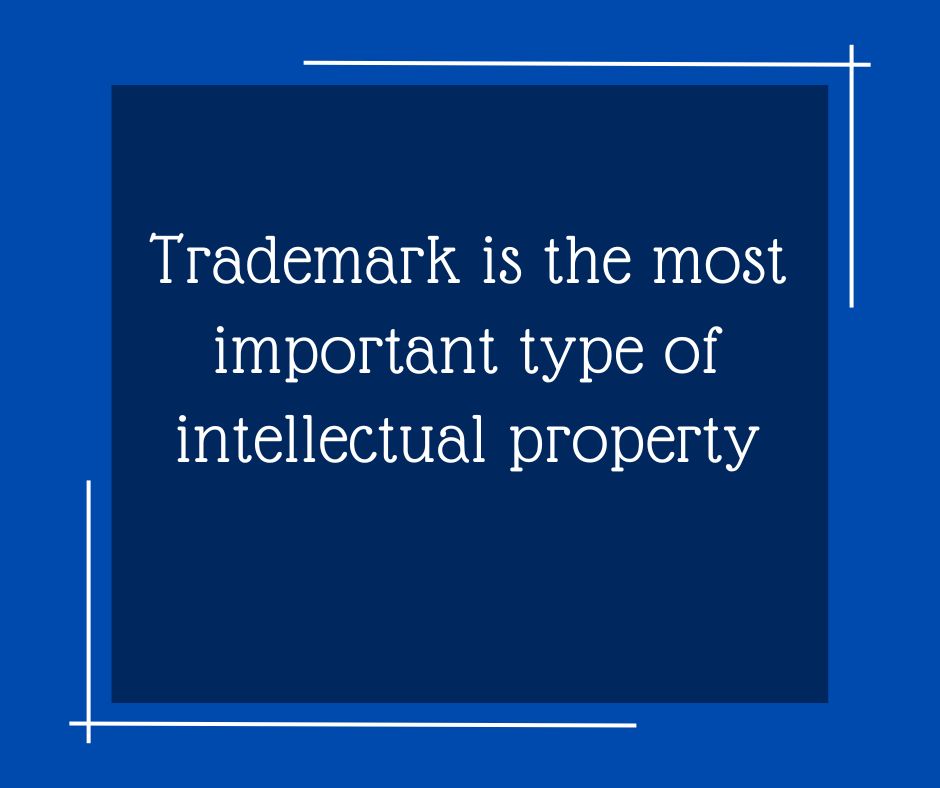
Trademarks are an essential type of IP. Trademarks are an absolute necessity for a business. They are less expensive than patents and not nearly as difficult to register, but they can protect the future of your business.
Your trademark is like a strongbox into which you put your marketing money. The more you invest in your brand, the more valuable it becomes. Some IP has inherent value, like patents, and some acquire value as time goes on, like copyrights. The value of your trademark is connected with the number of loyal customers and profits associated with the brand.
Patents are not necessarily like this. An invention is valuable by itself, and if it is important, the patent can become extremely valuable overnight.
Not every business needs a patent. Maybe 20% of all companies out there rely on patents. But 85-90% use their brand on an everyday basis. Let's make it even more apparent, 95% of businesses employing at least ten employees have a brand (registered or unregistered).
How losing intellectual property can damage your business.
A business using an unregistered trademark is inviting trouble. Anyone can bully it by registering the trademark it uses.
Losing a mark in a foreign country will result in an expensive lawsuit to get it back. In many cases, this will halt your sales until the end of the legal procedures, and I doubt that your competitors will be patiently waiting until you get back selling.
Using the metaphor I used before, while a registered trademark is a strongbox, an unregistered mark is a strongbox made of glass. You put your money in, but anyone with a hammer can break it.
What it means to own intellectual property
Intellectual property is like any other property, right? Right? Well, there are some differences. While intellectual property can be easy to sell, putting a price tag on your trademark or patent is usually tricky. The solution is intellectual property evaluation services that some accounting or law companies provide.
Also, it might be difficult to get a loan using your intellectual property as security. However, for copyrights and trademarks, there are no associated every-year maintenance costs. You must renew your trademark every ten years, but that's all.
If you own a registered patent, in this case, you must pay an annuity payment to maintain your patent active. If you miss one payment, the patent will become public property. Not only this, the annuity payments are increasing every year.
Is IP good or bad?
OK, hear me out. Intellectual property is neither good nor bad. Some people out there claim that patents destroy the spirit of invention and are used to limit or destroy competition. That's true. Also, it's true that you can get a patent only if you share your invention with humanity. And you know what? Businesses use all available tools to destroy competitors anyway; that's the nature of competition.
If we abolish patents, businesses will rely heavily on trade secrets. In this case, no one will be able to benefit from the invention as its nature will be kept secret. You may say that some companies overuse patent protection and patent trolls are the first to come to mind.
At the same time, these cases are rare. From my point of view, patents solve more problems than they create. The IP protection system needs further adaptation to the changing business environment, but the process is ongoing.
About the Author: Vladimir Isaev is one of the founders of Bonamark.com; he helped companies, from small family businesses to S&P 500 participants, to protect their Intellectual Property internationally.